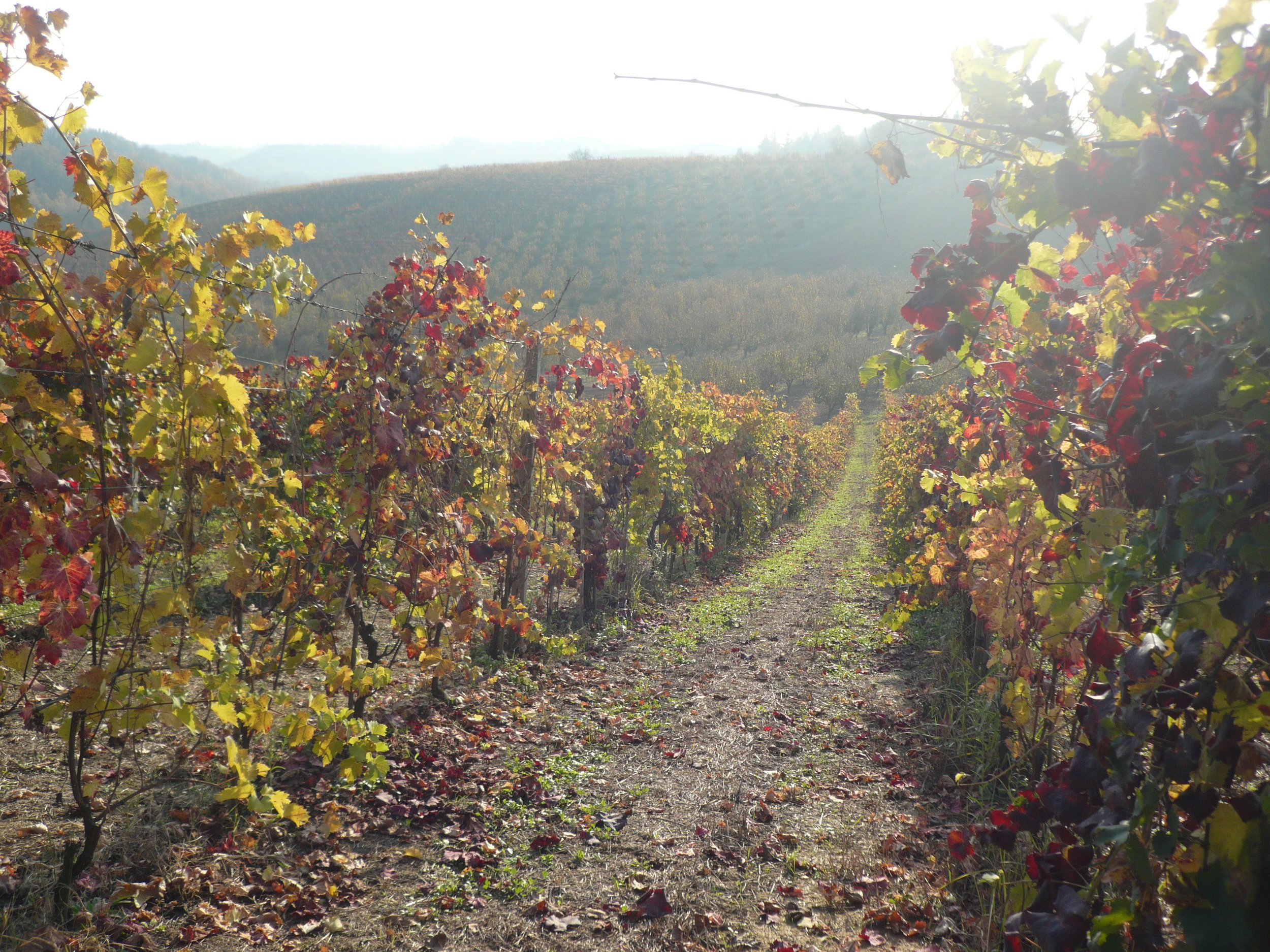
Johannes Zillinger
Weinviertel, Niederösterreich, Austria


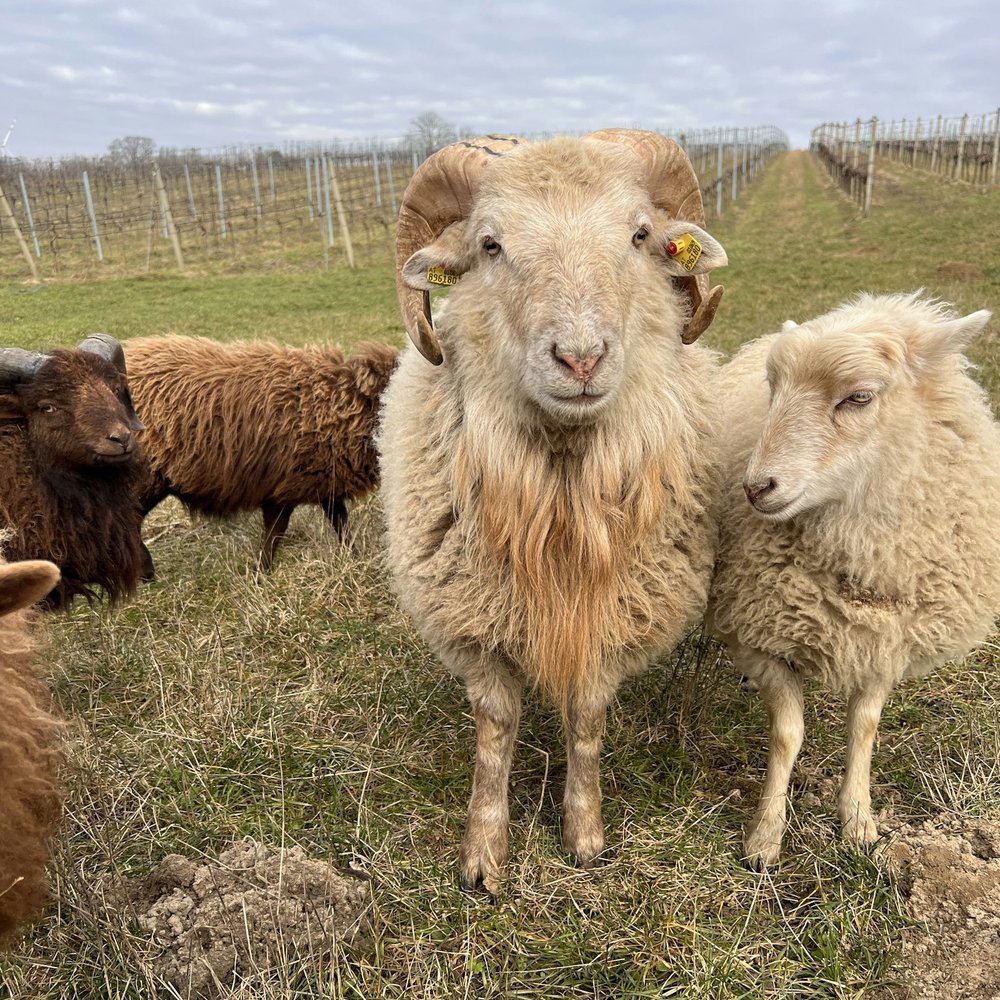
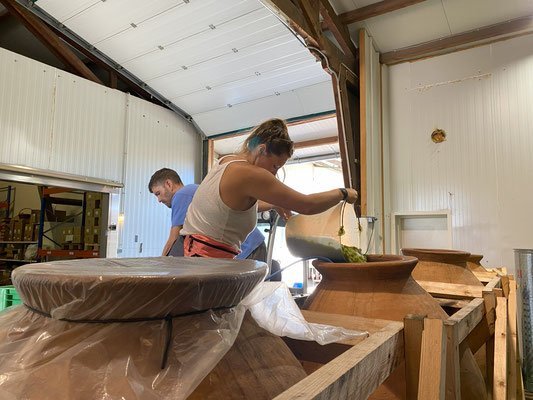
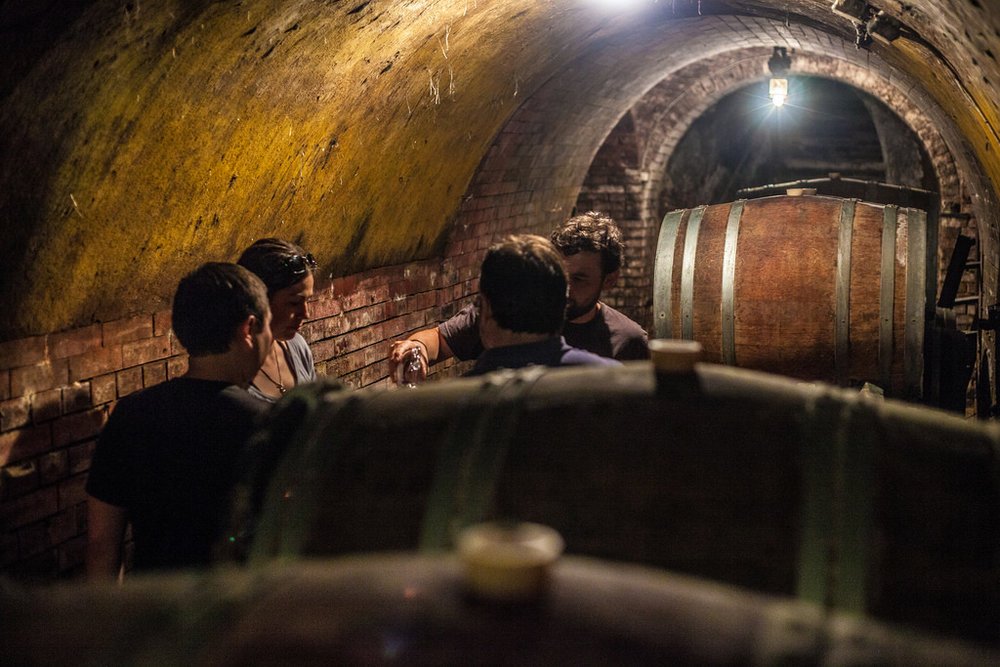
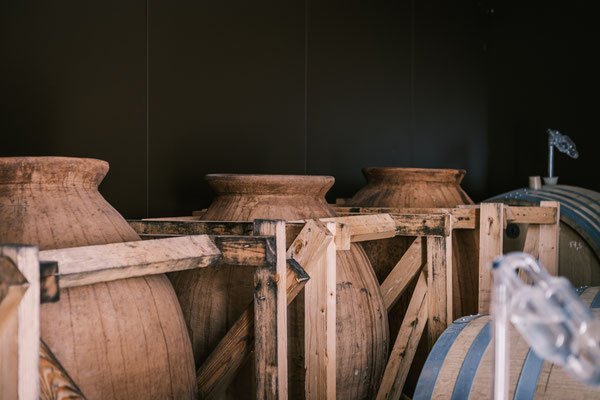
Johannes Zillinger learned early on from his father about the craft of organic winemaking, about viewing the vineyard as a habitat and protecting the environment instead of poisoning it. His father Hans turned to organic viticulture in 1983 and was one of its pioneers in Austria. (That transition was just two years before the anti-freeze scandal, when a number of Austrian winemakers were found to have added diethylene-glycol to enhance the texture of their wines.) When Johannes took over the winery and made it his own in 2013, he took it ever further, transitioning to biodynamics and starting a new chapter for the 350 year old winery.
His wines are certified Demeter biodynamic, and Johannes believes wholeheartedly in the philosophy of biodynamic farming. He grows his own herbs for tea tinctures to use as treatments in his vineyards. The wines are all spontaneously fermented, lightly filtered, and minimally sulfured only at bottling. These are impeccably made wines with precision, structure, and balance no matter the vintage or cuvee. They are also absolutely delicious.
From Johannes: “For me, as a person and as a company, organic and biodynamic agriculture has always been a journey of ongoing development – a dynamic evolution as opposed to standing still. 36 years ago, my father Hans converted the estate to organic farming. Back in the day, the challenges he was facing were very different compared to the ones of today. Our everchanging climate with hotter summers, warmer winters and erratic precipitations is a proof for us that we have taken the right steps – if sometimes ahead of their time – in the past years and decades. It was a logical consequence for us to also adapt the vinification of our wines, sometimes significantly, sometimes slowly and gradually. Nowadays, we vinify more than 60% of them using large barrels and amphorae as compared to 90% in stainless steel 10 years ago. We always bear in mind that organic farming keeps our yields at a low yet consistent level but above all provides us with high quality grapes. The concept of origin, in our view, should not be limited to single vineyards but must include the signature of the individuals who shape the way of cultivating the land. We live in a cool climate region and it is our ambition to continue to produce cool climate wines - respecting climate change. In light of this, we believe it is time to update and upgrade our portfolio for this year and the years to come.”
Our Selections
Zillinger Reflexion Grüner Veltliner K 2023
From Johannes: “In 2024 we will celebrate 40 years of organic farming. Out of respect and recognition for all generations involved, I have remastered an old project. Reflexion K combines the [three] favorite vineyards and vinification methods of my grandfather, father and me. [100% Grüner Veltliner] grown on lime-sandstone soil.”
Grapes from Kellerberg/Großbergen, Johannes’ grandfather's favorite vineyard, are macerated for 10 hours and aged in a large old wooden barrel.
Kellerberg/Steinhal grapes, his father's favorite see 12 hours of mash contact and vinified in a steel tank.
Johannes loves the Gruner Veltliner from the cool northern slopes of Hohe Eck near the edge of the forest. This third of the cuvee consists of whole grapes pressed and vinified in the 1000 liter amphora.
Alc: 12.9% vol | RS: 0.7 g/L | pH: 3.25 | total sulfites: 35 mg
Zillinger Velue White 2023
Johannes put a little twist on the 2023 Velue wines that embodies the lightness and freshness of previous vintages. This years white is a blend of 35% Gruner Veltliner, 35% Riesling, and 30% Gelber Muskateller entirely from Johannes’ biodynamic vineyards.
After harvest during the second half of September, each grape undergoes it’s own unique fermentation: Gruner Veltliner is crushed and then whole bunch pressed; Riesling is destemmed and skin-fermented for 24 hours before pressing; the whole bunches of Gelber Muskateller are foot-stomped. Each of the separate wines is aged in stainless steel for nine months on lees with batonnage. The wine undergoes natural malolactic fermentation and is bottled unfined and unfiltered.
This is pure joy - crunchy green apple skins, lemon and lime, and floral notes popping out of the background. So fresh and light, with an energetic texture and surprising length.
Alc: 11.5% vol | pH: 3.16 | total sulfites: 30 ppm
Zillinger Velue Red 2023
Johannes put a little twist on the 2023 Velue wines that embodies the lightness and freshness of previous vintages. This years’ red is a blend of 80% Zweigelt and 20% Merlot entirely from Johannes’ biodynamic vineyards. After harvest in mid-September, the destemmed, whole-berry Zwieglet undergoes five days of fermentation while the Merlot is whole bunch fermented for seven days.
The wine is pressed and racked into 50% stainless steel and 50% big old barrels where it ages on lees for eight months until bottling.
Yes, this is our ideal chillable red: bright, crunchy palate with fresh red berry fruits like Rainier cherry, redcurrant, and raspberry.
Alc: 11.5% vol | pH: 3.20 | total sulfites: 35 mg
Zillinger Riesling JZ Velue 2.0 2022
Johannnes Zillinger’s Velue wines are named after both the old name of his village, Velm-Goetzendorf, and for the local willow trees.
His Riesling comes from the Steinthal Vineyard harvested at the end of September. Here, 10-40 year old vines grow on loess and lime-sandstone soils. This site is found on a hilltop with eastern slope and southern slope exposures — perfectly balancing ripeness with mouthwatering acidity.
Half of the grapes are whole cluster pressed and the remaining half are destemmed and macerated for 24 hours. A slow and gentle pressing of more than five hours gives a rich grape must that is full of character. Fermentation is done in a combination of old oak barrels and stainless steel.
A delicious and savory Riesling featuring yellow stone fruits, herbs, and a salty mineral note. The is super refreshing and complex. Johannes says: “Riesling on lime sandstone?? Yeah!! That’s GREAT!”
Alc: 11.7% vol | residual sugar: 1,1 g/L | pH: 3.01 | total sulfites: <35 mg | Certified Demeter biodynamic.
Zillinger Grüner Veltliner JZ Velue 2.0 2022
The Gruner Veltliner Velue 2.0 comes from a selection of vineyards located around Johannes’ village. The Kellerberg, Steinthal and Hohes Eck vineyards are planted on loam loess and lime-sandstone soils and vines range between 7 and 55 years old.
Combining creativity and experimentation with an acute understanding of his vineyards, Johannes has a completely unique method of harvesting, fermenting, and blending his Velue 2.0. The Zillinger team harvests the Gruner Veltliner in three passes that occur throughout the month of September. The grapes harvested during the first pass are whole bunch pressed, making up roughly 50% of the blend. The riper second-pass grapes make up 45% of the cuvée and are briefly macerated (12-24hr). The ripest grapes are harvested at the end of September make up 5% of the cuvée and are fully skin-fermented! This three-part harvest allows Johannes to play with acidity, fruitiness, and richness of Gruner along the ripening curve.
Fermentation is done in a combination of 70% stainless steel tanks, 25% big barrels, and 5% amphora (for the skin-macertated portion) . The cuvées are blended and aged on the lees with battonage for six months in stainless steel and oak barrels.
Johannes’ Grüner is distinct from examples one might find in Kamptal or Wachau. The flavor profile features notes of apples and herbs on the nose, a medium-bodied texture that is refreshing yet complex and multi-faceted on the palate with shimmering minerality and a hint of phenolic character.
Alc: 11% vol | residual sugar: 1 g/L | pH: 3.15 | total sulfites: <35 mg | Certified Demeter biodynamic.
Zillinger Parcellaire Blanc #2 (Pinot Blanc / Sauvignon Blanc) 2022
As Johannes says: “We live in a cool climate region, and it is our ambition to continue to produce cool climate wines - respecting climate change. The concept of origin or terroir, in our view, should not be limited to single vineyards but must include the signature of the individuals who shape the way of cultivating the land…[For the Parcellaire wines] I select only the coolest parcels of my oldest vineyards: those close to forests, facing north and northeast and windy hilltops – all of them growing on lime-sandstone soils.
For the new Parcellaire Blanc #2, Johannes is using a blend of 62% Pinot Blanc and 38% Sauvignon Blanc. After hand harvesting in mid-September, the Pinot blanc is whole bunch fermented in kvevri and pressed after 7 days. It finishes fermentation in big, old barrels while the Sauvignon blanc is direct pressed and fermented in old 500 liter barrels. The wines spend 12 months aging on lees, in barrel, and go through natural malolactic fermentation. The two wines are blended and bottled unfined and unfiltered.
Zillinger Parcellaire Rouge #1 (Cab Franc & Syrah) 2020
Parcellaire is one of Zillinger’s newer projects. As Johannes says: “We live in a cool climate region, and it is our ambition to continue to produce cool climate wines - respecting climate change. The concept of origin or terroir, in our view, should not be limited to single vineyards but must include the signature of the individuals who shape the way of cultivating the land. This range is a further development of my previous single vineyard wines. For Parcellaire Rouge #1, I select only the coolest parcels of my oldest vineyards: those close to forests, facing north and northeast and windy hilltops – all of them growing on lime-sandstone soils.’
62% Cabernet Franc and 38% Syrah from 25-year-old vines located on hilltop vineyards with a north-eastern slope and exposure. The Cabernet Franc was whole bunch fermented in amphoras, then pressed and matured in 500-liter barrels. The Syrah was briefly macerated, pressed, then fermented in old NUMEN barrels and aged for ten months. The two varieties were blended two months before bottling, unfined and unfiltered.
This is a unique red wine that balances elegance and minerality with a brambly dark fruits and a hint of herbs.
Alc: 12,0% vol | residual sugar: <1,0 g/lt | acid: 6,0 g/lt | total sulfites: <15 mg Certified Demeter biodynamic.
Zillinger Revolution Pet Nat Natural Sparkling MV
Johannes Zillinger’s Revolution wines focus on vintage blends using the solera system, amphorae fermentation, PiWi vines, short fermentations on the skins, and unlikely grape blends. These unique, non-vintage wines are an attempt to recognize terroir while minimizing the effect of vintage differences. The idea is to show a style of wine that has a similar character year to year. Much like a non-vintage Champagne, each bottling has a specific lot number; the last two digits of which identifies the base year for the blend. Perhaps most importantly, they are delicious!
Johannes Zillinger’s 2023 bottling of Petillant Naturel is a crisp, aromatic and dry blend of 70% Grüner Veltliner, 20% Riesling and 10% Muskateller, all from 30+ year old vines grown on south facing hilltop vineyards consisting of loess and sandstone soils.
Whole cluster pressed Grüner Veltliner from the 2022 vintage starts fermentation in stainless steel. The must is then bottled with a selection of 2021 vintage Riesling (macerated on the skins for one day) and Muskateller (7 day maceration), where it completes fermentation. At a mere 11% alcohol and 0.8 g/l RS, this is a quaffer with notes of tart apple, pear, flowers and stone fruits. Very persistent bubbles add a clean, mineral note to this crisp pet nat.
Alc: 11% vol | residual sugar: 0.8 g/lt | acid: 6,0 g/lt | total sulfites: 25 mg | Certified Demeter biodynamic.
Zillinger Revolution Solera White MV
Johannes Zillinger’s Revolution wines focus on vintage blends using the solera system, amphorae fermentation, PiWi vines, short fermentations on the skins, and unlikely grape blends. These unique, non-vintage wines are an attempt to recognize terroir while minimizing the effect of vintage differences. The idea is to show a style of wine that has a similar character year to year. Much like a non-vintage Champagne, each bottling has a specific lot number; the last two digits of which identifies the base year for the blend. Perhaps most importantly, they are delicious!
The Revolution White (LOT24), bottled in 2024, is a blend of 40% Chardonnay, 35% Riesling and 25% Scheurebe, from 25-to-40-year-old hilltop vines planted on lime and sandstone soils. So far pretty normal, right? Here’s where it gets weird (and wonderful). Chardonnay comes from the 2023 vintage and is fermented on the skins for about 10 days in 1000-liter clay amphoras. The Scheurebe, an aromatic hybrid-crossing, is first fermented using intra-cellular fermentation (ie. whole berry fermentation), then added to a solera dating back to 2017 kept in 600 liter Acacia barrels. This solera is then blended with a Riesling solera dating to 2013 and kept in stainless steel.
The resulting wine is mouth-wateringly delicious, with notes of apples, herbs, peaches, and perfume on the nose. The palate is both textured and tensile, with mineral and smoky notes weaved into the juicy, fruity flavors.
Alc: 12% vol | pH 3.25 | Total sulfites: <30 mg | Certified Demeter Biodynamic.
Zillinger Revolution Red MV
Johannes Zillinger’s Revolution wines focus on vintage blends using the solera system, amphorae fermentation, PiWi vines, short fermentations on the skins, and unlikely grape blends. These unique, non-vintage wines are an attempt to recognize terroir while minimizing the effect of vintage differences. The idea is to show a style of wine that has a similar character year to year. Much like a non-vintage Champagne, each bottling has a specific lot number; the last two digits of which identifies the base year for the blend. Perhaps most importantly, they are delicious!
The Revolution Red (LOT: L0622-RRS18-21), bottled in 2021, is a blend of 40% Roesler, 40% Cabernet Franc, and 20% Merlot from 20–30-year-old hilltop vines planted on loam, loess, lime, and sandstone soils. The Roesler, a PiWi hybrid of vitis rupestris and vinifera, undergoes a short fermentation and is blended in a solera that includes vintages 2018 through 2021. The Merlot, from the 2021 vintage, is whole berry fermented then aged in 500-liter barrels of oak and stainless steel. The Cabernet Franc also undergoes a short fermentation and includes wine from the 2019 through 2021 vintages.
A complex, deep, inky red wine that, both on the nose and on the palate, features a tension between fruit and earthy notes. Aromas of violets and redcurrants are buttressed by notes of graphite and bay leaf. Moderately intense on the palate with rich brambly fruit and ripe tannins.
Alc: 12,5% vol | residual sugar: 1,0 g/lt | acid: 6,0 g/lt | total sulfites: <25 mg |Certified Demeter biodynamic.
Zillinger Numen Fume Blanc 2021
Numen is a Latin term connoting the spirit or divine power presiding over a thing or a place. For Johannes, this range of wines represents the pinnacle of his winemaking. The Numen wines are made with almost no intervention in the cellar and are both natural and expressive.
The Numen Fumé Blanc is made from 40-year-old, biodynamically maintained Sauvignon Blanc vines planted on lime sandstone soils at the top of the Steinthal vineyard. Fermented entirely in amphora with 10% fresh berries added at the end of fermentation. Once fermentation is complete, the juice is pressed and aged in 600-liter oak barrels for 18 months. Bottled unfined and unfiltered. This is a remarkable Sauvignon Blanc that unfolds in complexity with time in the glass. It is reminiscent of the grand wines on Silex soils in the Loire Valley. Intense minerality, depth and elegance. Lightly herbal, with hints of melon, lemon peel and nectarine with a lingering mineral finish.
Alc: 12,5% vol | residual sugar: 1,2 g/lt | acid: 6,1 g/lt | total sulfites: <25 mg Certified Demeter biodynamic.
Zillinger Numen Riesling 2021
Numen is a Latin term connoting the spirit or divine power presiding over a thing or a place. For Johannes, this range of wines represents the pinnacle of his winemaking. The Numen wines are made with almost no intervention in the cellar and are both natural and expressive.
The Numen Riesling is made from grapes harvest in late September. They are put into kvevri destemmed but uncrushed where they spend 3 days on skins to begin intra-cellular fermentation. They are pressed after the start of fermentation and transferred to 600 liter acacia barrels where they finish fermentation and spend an entire 18 months on full lees! The wine is then bottled unfined and unfiltered. 2000 bottles produced.
Alc: 12.6% vol | RS: 4.0 g/lt | pH: 3.15 | total sulfites: 16 mg
Zillinger Numen St. Laurent Rose 2021
Numen is a Latin term connoting the spirit or divine power presiding over a thing or a place. For Johannes, this range of wines represents the pinnacle of his winemaking. The Numen wines are made with almost no intervention in the cellar and are both natural and expressive.
The Numen Sankt Laurent Rose comes from a tiny parcel of Sankt Laurent planted at the top of the Steinthal vineyard in 1922. This is not a rosé in the conventional sense. Rather, this is a light-colored, yet mind-bogglingly complex red wine. After harvest in early September, the grapes undergo semi-carbonic whole-cluster fermentation in amphora, then are left to rest for 6 months in the same vessel. There is a gentle extraction of color. The wine is then decanted into 500-liter barrels of acacia and oak for 4 months before being bottled without fining or filtration.
This old vine St. Laurent from amphora has juicy bright berry fruit which almost leaps out of the glass. The texture is as silky as a Pinot Noir and as full and brambly as a Syrah. This is a unique and stunning wine that simply must be tasted to be believed. 1000 bottles produced.
Alc: 11.8% vol | RS: 0.9 g/lt | pH: 3.16 | total sulfites: <15 mg
Zillinger Numen Grüner Veltliner 2020
Numen is a Latin term connoting the spirit or divine power presiding over a thing or a place. For Johannes, this range of wines represents the pinnacle of his winemaking. The Numen wines are made with almost no intervention in the cellar and are both natural and expressive.
The Numen Grüner Veltliner comes from Johannes’ oldest parcels of 55+ year old vines from the hilltop Kellerberg and Steinthal vineyards. The vines, planted on lime and sandstone soils, are all biodynamically managed through the use of natural green herbs such as thyme. After harvest, the grapes spend a short time skin fermented in amphoras, followed by a slow and gentle pressing. The young wine is then stored and matured in 700l acacia barrels for 20 months with no intervention. The resulting wine is stunning, a true departure from everyday Grüner. Notes of yellow fruits (yellow plums, loquats, and gooseberries), fresh black pepper, herbs and a cool minerality. The palate is dense and complex; medium-bodied and textured. There is a hint of white pepper and stony minerality on the finish. 1000 bottles produced.
Alc: 12,5% vol | residual sugar: 1,0 g/lt | acid: 5,9 g/lt | total sulfites: <20 mg














